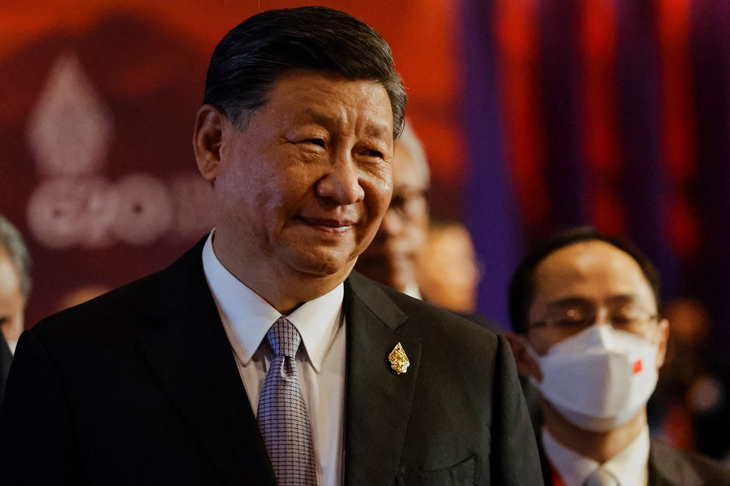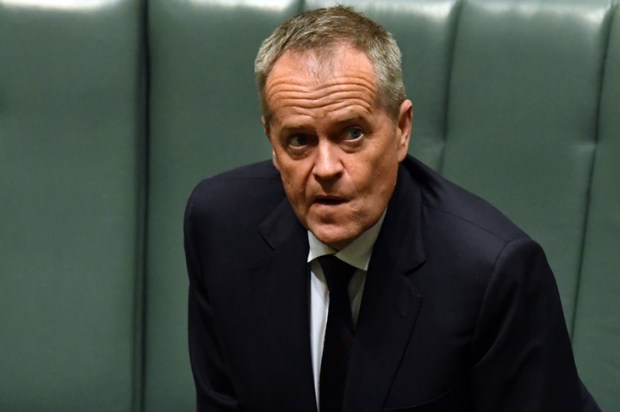The recent meeting between the Chinese and Australian leaders produced a bout of breathless headlines about the ‘thaw in relations’ and ‘a diplomatic coup’. Media reports largely celebrated the fact that the recently reclusive Mr Xi had finally met with a number of other leaders, including the Australian prime minister. This was celebrated as some kind of breakthrough, leading to a nirvana in international cooperation. Apart from the visual images of the meetings, there was little analysis of any constructive outcomes. A meeting in itself has become a significant achievement!
Much of the reporting relies on the official statements issued by respective countries. The communiques or statements published after world leaders meet are usually drafted before the event occurs. For days, even weeks, before prime ministers or ministers sit down at a summit or bilateral meeting, drafts of the final statements are worked and reworked by bureaucrats and ministerial staff. The documents form the basis of the leader’s speaking points, media releases and the country’s final statement. The only thing added after the meeting is a brief, selective summary of what the other party said. These statements are written with a domestic audience in mind. They contain many nice-sounding generalisations and promises of a cooperative working relationship but very little, if anything, of substance. Statements pertaining to real actions are found elsewhere: in trade, defence or other agreements or memoranda of understanding. Nonetheless, domestic media report the events as if some great outcome had been achieved.
This pattern was on display at the recent G20 summit in Bali. Take the statements issued by China and the US after the Xi-Biden meeting. Two current global issues naturally dominated the talks: Ukraine and Taiwan. According to the Americans, the two leaders agreed that ‘nuclear war must never be waged’ and Mr Putin’s threats were ‘irresponsible’. As with the earlier meeting with German Chancellor Olaf Scholz, the Chinese statement is very different. ‘Facing a global, composite crisis like the one in Ukraine, it is important to give serious thought to the following: first, conflicts and wars produce no winner; second, there is no simple solution to a complex issue; and third, confrontation between major countries must be avoided. China has all along stood on the side of peace and will continue to encourage peace talks’. There is no mention of nuclear war at all.
While the statements about Taiwan contained some superficial commonality, each nation maintained its different position. The statement published by the Chinese Foreign Ministry had Mr Xi contending that the One China policy was a ‘red line’ for his nation. While using the same ‘One China’ expression, Mr Biden signalled something very different, saying that ‘our One China policy had not changed’ and the US opposed ‘any change to the status quo’. Missing from the Xi statement is Biden’s accusation of Chinese aggression and coercion towards Taiwan. In its place is Xi’s criticism of ‘decoupling and trade wars’.
The fact is that each nation recited its pre-existing policy approaches. According to the Chinese statement, Xi told Biden that ‘the so-called “democracy versus authoritarianism” narrative is not the defining feature of today’s world, still less does it represent the trend of the times,’ despite the fact that he has repeatedly said that there is a global contest between the two ideologies – and the authoritarian will prevail!
The meeting between the Chinese and Australian leaders followed the same pattern. According to the Australian media reports, Mr Albanese told Mr Xi, ‘We have had our differences. And Australia won’t resile from our interests or our values… but our bilateral relationship is an important one. Both sides have worked to stabilise the relationship based upon mutual respect and mutual benefit.’ Consider the different Chinese emphasis. ‘A mature and stable bilateral relationship should first and foremost be reflected in putting the differences and disagreements between the two countries in the right perspective. It is imperative to rise above disagreements, respect each other and seek mutual benefit and win-win results, which holds the key to the steady growth of the relationship… China attaches importance to the will Australia has recently demonstrated to improve and grow its relations with China. The two sides need to take stock of experience and lessons, explore ways to steer the relationship back onto the right track, and move it forward in a sustainable manner. With tremendous potential in economic and trade cooperation between the two sides, China hopes that Australia will provide an enabling business environment for Chinese enterprises to invest and operate in Australia.’ The sub text: a chastened Australia has seen the error of its ways!
Contrary to headlines about ‘a thaw in relations,’ little has changed. Faced with worsening economic conditions, water shortages, ongoing Covid restrictions, a serious property downturn, high youth unemployment, new US curbs on Chinese technology and a failure of policies of economic coercion, Mr Xi has many reasons to tone down his aggressive rhetoric. Having been elected for another five-year term – perhaps longer – he does not have to amplify his international oratory for his domestic audience. Even so, the Chinese domestic media reported that Mr Xi had warned that ‘China has a glorious tradition of tireless self-improvement, and any suppression and containment will only stimulate the will and enthusiasm of the Chinese people,’ a phrase directed at the fervent nationalism that Xi has fostered. Nor did Mr Biden have to play to a domestic audience, the Democrats having repelled the anticipated Republican wave at the US mid-term elections. But this could all change in 12 months’ time when the Taiwanese are going to the polls and Americans are in their primaries season. Far from being a ‘tremendous reset’ in relations, or a ‘capitulation by a great power’, Xi’s ambitions remain as they were. His angry public bullying of Justin Trudeau and his cancellation of a meeting with new Prime Minister Rishi Sunak after a UK minister visited Taiwan and Sunak told reporters that ‘China unequivocally poses a systemic threat… to our values and our interests and is undoubtedly the biggest state-based threat to our economic security’ demonstrate an unyielding Xi.
The Chinese leader may be re-engaging with the world, but the real test is whether any of the CCP’s coercive measures are relaxed. The world would be better to judge the Chinese leader on what he does, not what he says. While warning other nations, including Australia about their defence cooperation, the CCP is engaged in a massive military expansion. Even as Xi was preparing to fly to Bali for the meetings, the PLA Navy was challenging the passage of two Australian ships in international waters near the disputed Spratley Islands. Xi has consistently shown himself to be inflexible, jingoistic and ruthless. He constantly repeats his vision for the rejuvenation of the great Chinese nation. Nothing said in Bali has changed his long-term ambitions.
Got something to add? Join the discussion and comment below.
Get 10 issues for just $10
Subscribe to The Spectator Australia today for the next 10 magazine issues, plus full online access, for just $10.
You might disagree with half of it, but you’ll enjoy reading all of it. Try your first month for free, then just $2 a week for the remainder of your first year.














Comments
Don't miss out
Join the conversation with other Spectator Australia readers. Subscribe to leave a comment.
SUBSCRIBEAlready a subscriber? Log in